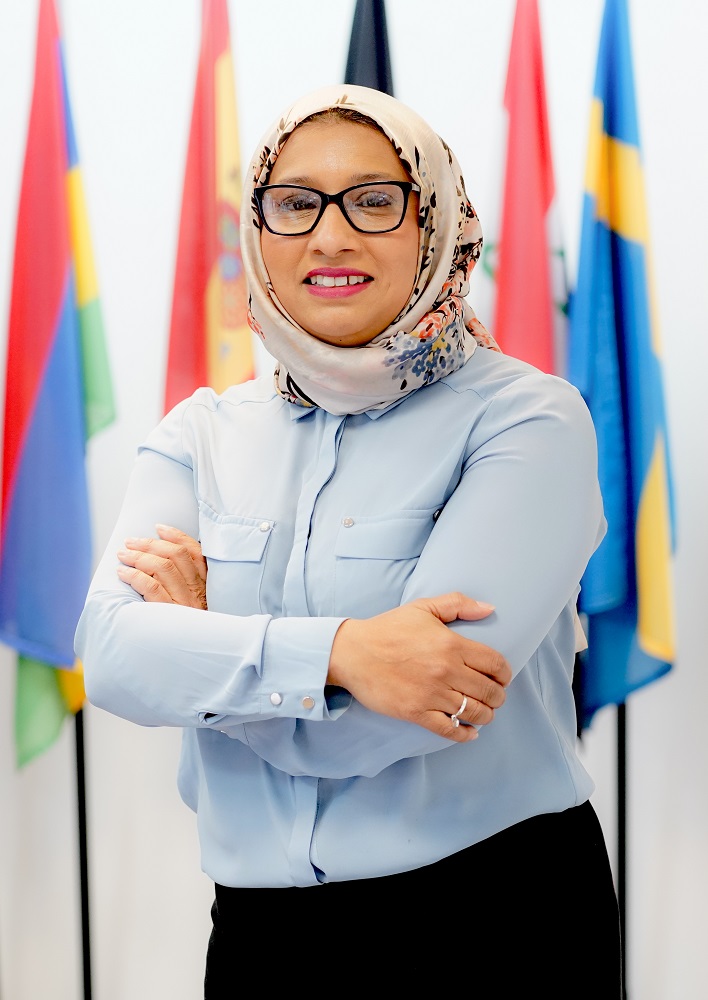This Islamophobia Awareness Month highlights one of the greatest political and moral challenges facing the world. Reflecting on the devastating consequences of Islamophobia, our head of global advocacy Shahin Ashraf argues that covert prejudice is as harmful as overt hate – and everyone must hold themselves accountable.

There’s no doubt that Islamophobia is becoming increasingly common.
Many people think Islam is a threat to communities living in the west. A YouGov poll earlier this year suggests that virtually identical numbers of people believe racism exists in the country today (84%) as believe it existed 30 years ago (86%).
It can be argued that Muslims are thought of and represented as ‘un-British’ and therefore this raises the issue that a new type of racism has emerged that is largely based on culture and religion rather than colour.
The rise of Islamophobia or this type of racism has caused increased fear, anxiety and unrest for Muslim people living in the west. Often with many uncomfortable leaving their homes alone and others feeling ostracised in the workplace, serious hate crimes fuelled by Islamophobia can inflict deep wounds.
The effects are undeniably felt even more by Muslim women, who face discrimination because of their faith and their womanhood. As a British Muslim hijab-wearing woman, I have experienced Islamophobia first-hand on many occasions.
The feeling is indescribable.
I was at a high level event and someone ushered the experts through one door. I also headed for that door but was told I needed to use another, since that door was only for experts on the subject matter. When I pointed out that I was an expert on voting rights of victims of domestic abuse, he giggled as he told me that I looked more like a victim but he supposed experts come in all forms these days.
I’ve experienced such micro-aggression over and over again throughout my career. It is a dehumanisation that leads many women in the professional space to wonder, when will it all change?
The phenomenon of gendered Islamophobia is apparent, with a recent report by Tell MAMA indicating that 66.7% of respondents consider Muslim women are at greater risk of Islamophobia.
Muslim women are the first to pay the price when crimes are carried out – and can be seen as an easy target by those who hold disturbing racial views. When it comes to hate crime and speech, we are once again more likely to be victims, particularly if we wear a headscarf. We’re more likely to be targeted for both physical and psychological abuse.
While overt Islamophobia is easier to identify and call out, Muslims are also subject to its more insidious forms. Misleading depictions of Muslims by even mainstream media outlets are both perpetuating and stirring up a torrent of prejudice.
We constantly see orientalist rhetoric used to describe Muslims. We’re described as ‘isolated communities’, creating a view of Muslims to be the somewhat feared and alien other. Alternatively, we are lumped together as a single homogenous group, with particular social roles, attitudes and ways of living. This is also highly discriminatory.
In this way, the fundamental premise of Islamophobia – hate towards Muslims in the belief that they are violent, vastly different and a threat to others – is deliberately or unwittingly perpetuated. These poisonous stereotypes are far more subtle expressions of Islamophobia than violent acts of hate, but no less dangerous because they have been internalised by a significant proportion of society.
Many are not even aware that they hold these views, yet alone that they display such attitudes in their treatment of Muslims.
That’s often what lies behind the seemingly everyday incidents of micro-aggression that Muslims experience. For example, ‘You’re doing well for a professional Muslim’, can be shrugged off as a flippant, throwaway comment but it hurts those who have it flung at us and presents us with a dilemma.
Do we ignore it and allow it to feed the very Islamophobia to which we are subjected? Do we challenge it and risk being seen to confirm the stereotype that Muslims are over-sensitive? Whichever we choose such micro-aggression has wide-reaching impacts, including causing Muslims to see themselves as less worthy, and eroding self-esteem and ultimately our ability to realise the potential to which God has given to every human being.
And the decision we make – to ignore or challenge – does not affect us only. Like all other forms of racism and bigotry, Islamophobia harms wider society, not just those communities on the receiving end.
We see ‘Muslim’ used as a smear against people of other faiths, who are told they don’t belong to their country of origin. We see non Muslim people of colour abused because they look Muslim. My friend, a British turban wearing Sikh, was recently racially abused on the street. The men used a highly offensive racial slur when they screamed at her to, ‘Go home back to Iraq.’ Just one of countless examples of the breath-taking ignorance and disturbing hate that Islamophobia generates.
We also know that the oppression of any part of any society is a weeping wound that stains and disadvantages that society as a whole. It is therefore crucial that each of us reflect on the extent to which we perpetuate Islamophobia through our own words and actions.
We must also understand the impact of what we don’t say and do. Every time we say nothing when we hear an Islamophobic comment, every time we are confronted with yet another stereotype, and yes, every time we encounter any form of hate, we have a moral responsibility to challenge it.
Only then can we collectively work toward a world in which Muslims are understood as individuals, breaking down societal barriers which lead to othering and discriminatory practices. Only when we hold ourselves and others to account can we free the world from the open wound that is Islamophobia and any other form of hate and bigotry.










